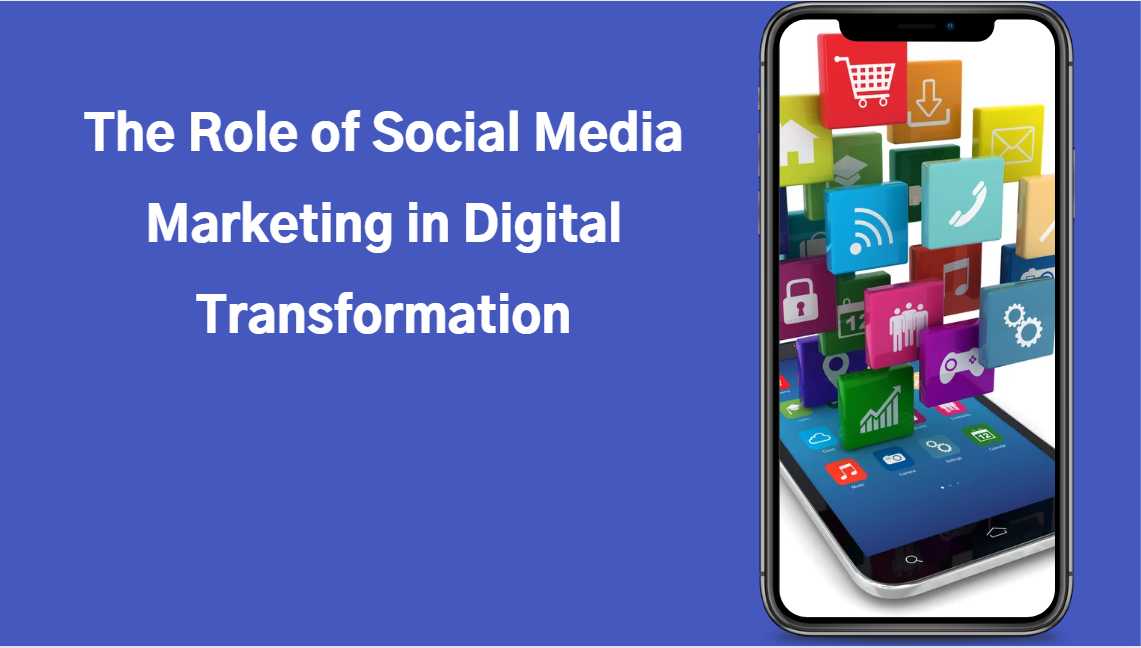Page Contents
Social media has become an essential component of digital marketing, with the ability to influence a company’s digital transformation significantly. For this reason, it is critical to have a clear plan before utilizing it.
In such a competitive market, social media teams must use every opportunity to boost efficiency and maximize returns on investment. In this aspect, digital adoption is unquestionably the way to go. Let’s dive into how social media can be leveraged to accelerate digital transformation and how this, in turn, will boost a business’s social media marketing capabilities.
Defining Digital Transformation
You’ve undoubtedly heard the term “digital transformation” in some context because it’s been a hot topic in recent years. You could think of it as a trendy phrase, but it’s not going away, and it’s far more than that.
We live in a digital era, and as technologies and tactics grow, organizations, in particular, must grasp digital transformation, what it entails, and the strategies and technologies that will be critical to future corporate success.
The process through which companies incorporate technology into their operations to promote fundamental change is known as digital transformation. What are the advantages? Enhanced efficiency, streamlined data collection API, increased company agility, and created new value for employees, clients, and shareholders.
There are several roads to digital transformation, and each organization’s journey will be unique. To improve customer experience, a corporation could implement artificial intelligence or cloud computing. Alternatively, it may reorganize its supply chain to make greater use of machine intelligence. A corporation may generate accurate forecasts about the customers’ desired products in a few months and then adjust production to match demand.
Why Social Media Is Key
Using social media to boost exposure and brand recognition is a familiar idea. Nearly 80% of businesses use the media to develop their business and reach customers, demonstrating that organizations are fully aware of its good benefits on business-to-consumer growth.
Being customer-focused is the top goal for businesses using digital technology in their growth plan, as they recognize the considerable need for ubiquitous, real-time customer experience.
Digital leaders must monitor emerging technology trends and determine where such technologies have the most significant impact and ROI on the business. Delivering excellent customer care at every stage of the customer journey is a significant advantage. While social media is not an all-inclusive digital strategy in transformation efforts, it is crucial to the success of overall company digital transformation.
Want to Gain More Real and Loyal Instagram Followers?
How Successful Digital Transformation Improves Marketing Capabilities
Social media teams are constantly under pressure. Working on such fast-moving and often unpredictable digital platforms requires marketing teams to be agile, developing fresh material on the fly to ensure that campaigns connect with new trends.
Furthermore, marketers are responsible for responding to inquiries and connecting with prospects. However, teams are routinely plagued with repetitive activities that waste their time.
To develop a unified and influential company, the activities of these teams must be intertwined with those of sales, product, and customer support. To achieve that objective, businesses must assist teams in becoming proficient using the most recent digital adoption tools.
DAPs are software solutions that businesses may overlay on top of existing apps to provide real-time contextual support for employees as they learn new technologies. Employees’ learning curves are shortened, and the onboarding process is streamlined.
This streamlined process is critical, as teams must be able to use automation software. In doing so, businesses can automate posts and updates across channels, removing some of the effort associated with operations such as lead generation. Consequently, social media managers have more time to focus on their most important activities, such as writing material that increases engagement and conversions.
Furthermore, businesses may use automation technologies to harness machine learning to ensure messages are sent out at ideal times, ensuring the highest return on all social media initiatives.
Read More: How to Schedule Instagram Posts on All Devices
Being Strategic
Social media has become an essential component of digital marketing, with the ability to influence a company’s digital transformation significantly. For this reason, it is critical to have a clear plan before utilizing social media. Here are some pointers for making strategic use of social media in your digital transformation efforts:
1. Determine Your Objectives
What do you want to accomplish with your social media efforts? It might range from raising brand recognition to generating leads and revenue. Once you’ve identified your objectives, you may devise a strategy.
2. Engage with Your Audience
Since social media is a two-way street, it’s critical to interact with your followers and answer their comments and queries. This fosters trust and loyalty among your target audience, which may lead to improved conversions and sales.
3. Analyze and Optimize
Monitor the performance of your social media activities using analytics tools. This will allow you to assess what is and isn’t functioning and make modifications as needed. Regular analysis and optimization may assist in ensuring that your socialmedia strategy is effective and in line with your overall digital transformation goals.
The Bottom Line
Digital transformation can begin with a solid social media strategy. Your business will come up to speed with current trends by making great marketing choices. And in turn, it will power your continued digital transformation efforts.
FAQs
Q1. How Does Social Media Marketing Assist Businesses in Their Digital Transformation?
Social Media Marketing enables businesses to reach a wider audience, create personalized interactions, and build brand loyalty.
By harnessing the power of social media analytics, companies can identify customer preferences, refine their products or services, and optimize marketing efforts.
Moreover, social media facilitates real-time communication, allowing organizations to respond promptly to customer inquiries, complaints, or feedback, thereby improving overall customer satisfaction. Embracing Social Media Marketing as part of their digital transformation strategy empowers businesses to stay agile and adaptive in today’s fast-paced digital landscape.
Q2. How Can Social Media Marketing Enhance Customer Experience During the Digital Transformation Process?
Social Media Marketing enhances the customer experience by fostering two-way communication between businesses and their customers.
Brands can use social media platforms to provide personalized support, offer real-time assistance, and address customer concerns promptly. Engaging content and interactive campaigns build stronger relationships with customers, increasing their loyalty and advocacy.
By integrating Social Media Marketing into their digital transformation efforts, companies can ensure a customer-centric approach, leading to improved customer satisfaction and long-term business growth.






